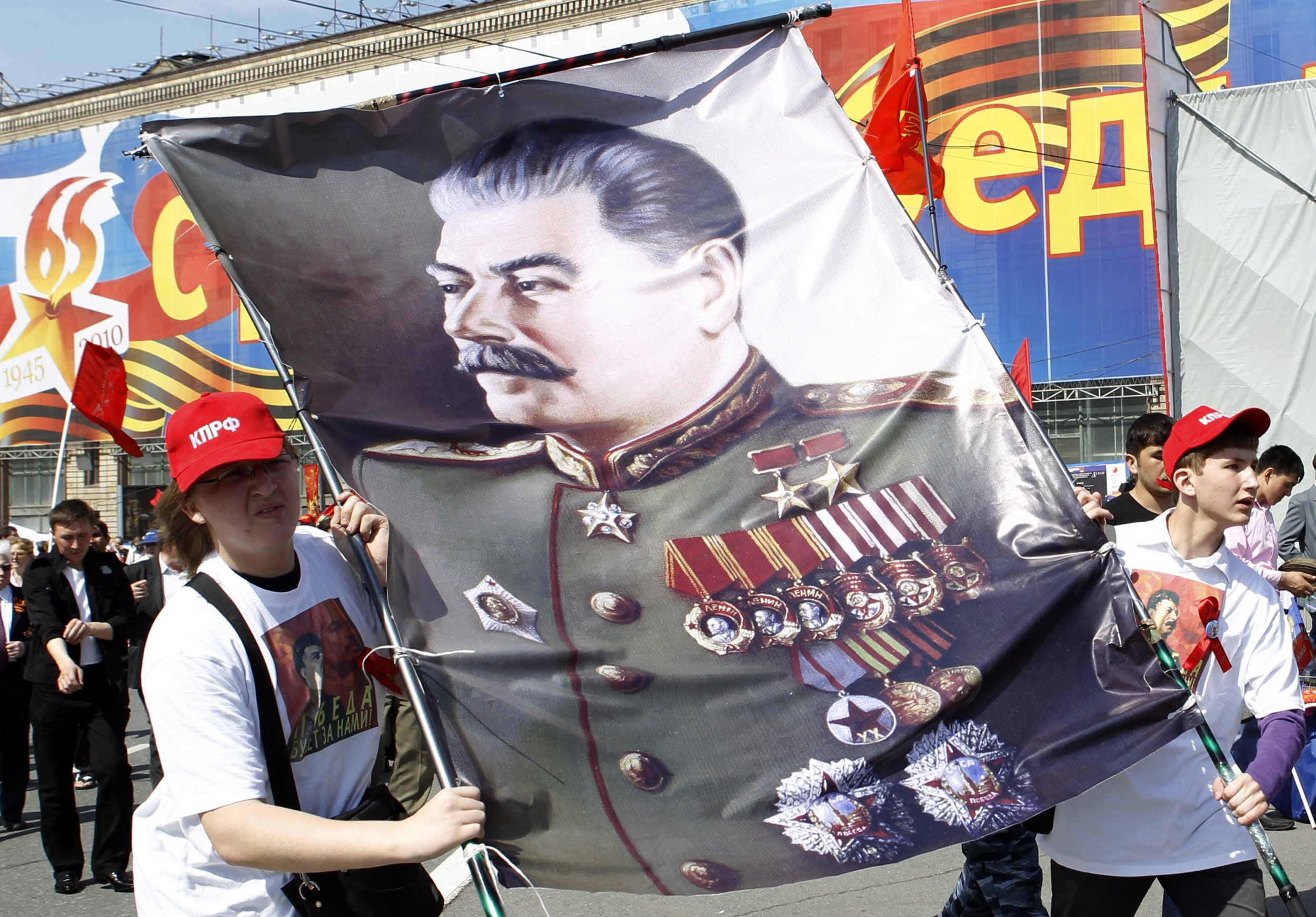
The number of Russians who approve of Soviet generalissimo Joseph Stalin's wartime leadership is growing, as is the desire to commemorate World War II and Russia's triumph over Nazi Germany, pro-Kremlin pollster Public Opinion reports.
Exactly 50 percent of those polled said they considered Stalin's leadership during World War II positively. The victory there is seen as arguably his greatest success. In 2005 that number was closer to 40 percent, the first time that poll was carried out.
The figures parallel independent polls from earlier this year that show a 16-year peak (46 percent) of positive attitudes in Russia towards Stalin.
World War II is an emotional issue to this day in Russia because of the enormous casualty count the Soviet Union sustained in the conflict. Over 25 million soldiers and civilians were killed by the Nazi advance into the Soviet Union, according to Russian government estimates.
The Soviet victory spawned an image Stalin would cultivate for the rest of his life as ruler, that of an uncompromising strongman. His famous orders 270 and 227 commanding every soldier to fight to his last and to treat any surrender as betrayal were widely cited as testament to his iron resolve during his rule.
More recent investigations have exposed less impressive aspects of his wartime rule, including his unpreparedness for the German invasion in 1941 after signing a nonaggression treaty with Berlin, and his profound state of depressive shock after the fall of Minsk soon after.
His wartime policies, including the non-aggression pact, were hugely unpopular in Poland and the Baltics states whose independence disappeared as a result. There, both Stalin's Red Army and Adolf Hitler's Wehrmacht were regarded as historical occupying forces. War-time Soviet executions of local forces including thousands of Poles near Katyn color Stalin and the Soviet Union's image strongly in some of Russia's neighbors.
Stalin's self-championed cult of personality centered around his role in defeating the Nazis, which to this day is a central redeeming feature of his otherwise brutal and repressive rule in the eyes of Russians with sympathetic or at least mixed feelings towards him.
Commenting on the latest poll, Russian sociologist Igor Chubais told Voice of America that "propaganda" determines public opinion towards Stalin to this day.
"Attitudes to Stalin shift not in relation to discoveries of new documents and facts but it all depends on what policy the government takes," he said, referring not only to the current government but also other previous occupants of the Kremlin. "Under [Nikita] Khrushchev Stalin immediately became a criminal, under [Leonid] Brezhnev they tried not to mention the name of the tyrant as a matter of principle, under [Mikhail] Gorbachev criticisms of Stalinism began and under [Vladimir] Putin a policy of reanimating the inhumane regime."
Uncommon Knowledge
Newsweek is committed to challenging conventional wisdom and finding connections in the search for common ground.
Newsweek is committed to challenging conventional wisdom and finding connections in the search for common ground.
About the writer
I am a Staff Writer for Newsweek's international desk. I report on current events in Russia, the former Soviet Union ... Read more
To read how Newsweek uses AI as a newsroom tool, Click here.








